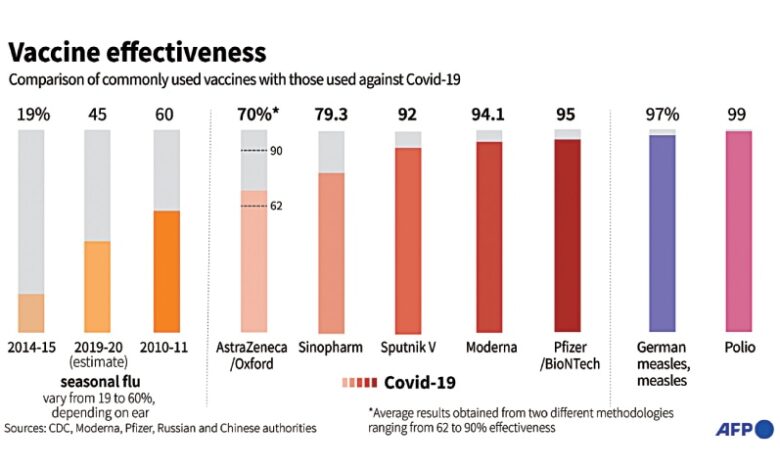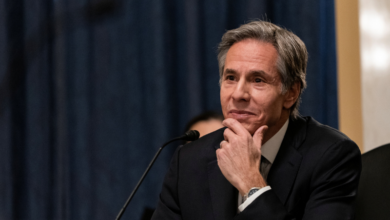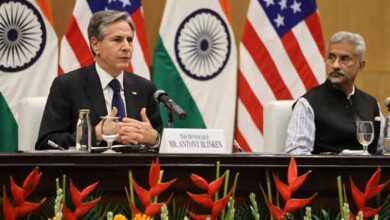UK watchdog approves use of ‘vaccine for the world’

LONDON: Britain authorised an easy-to-handle coronavirus vaccine on Wednesday and decided to stretch out the time between doses to allow more people to get some level of protection faster as infections surge.
The first green light for the shot dubbed the “vaccine for the world” brought a measure of hope that the pandemic could be brought under control.
The vaccine developed by Oxford University and drugmaker AstraZeneca is expected to be relied on in many countries because of its low cost and the fact that it can be kept in refrigerators rather than at the ultra-cold or freezer temperatures some other vaccines require.
“This wonderful news brings renewed hope at a time of rising infections and unprecedented pressure on health services in the UK and beyond. It is now critical that this hope can be shared by all nations,” said Anna Marriot, Health Policy Manager at Oxfam aid agency.
Even as the authorisation was welcomed as a significant development in efforts to contain the virus that has killed nearly 1.8 million, the change in British policy on administering the shots drove home concerns about a new, potentially more contagious variant that authorities blame for rising hospitalisations in Britain. The new variant has been found in several countries, including the US.
Because infections are spreading so rapidly in the UK, officials are now recommending prioritising delivering a first dose to as many people as possible for both of the vaccines authorised for use in the country: the AstraZeneca one and another from Pfizer-BioNTech. Officials say both protect people even after just one of the two recommended doses and that increasing the time between doses might even have a benefit.
“The immediate urgency is for rapid and high levels of vaccine uptake,” Wei Shen Lim, chair of the Joint Committee on Vaccination and Immunisation, told reporters on Wednesday.
“This will allow the greatest number of eligible people to receive vaccine in the shortest time possible, and that will protect the greatest number of lives.”
Hundreds of thousands of people in the UK have already received at least one shot of the Pfizer-BioNTech vaccine. British Health Secretary Matt Hancock said the rollout of the AstraZeneca one will start on Jan 4.
The Medicines and Healthcare Products Regulatory Agency, which recommended the AstraZeneca vaccine for emergency use, did not endorse one vaccine over the other. The regulator also updated its guidance on the Pfizer-BioNTech shot to say that pregnant women and women who are breastfeeding can get it after a consultation with a health professional about the benefits and risks. Previously, the agency had not recommended the shot for pregnant women.







